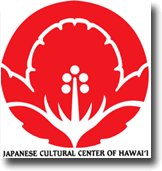Community website by MBC/Ernest Abrams. Call 808-739-9797 for advertising/sponsorship#KaimukiHawaii
Kaimuki, Hawaii
Event Calendar ItemNew JCCH Exhibit - Pride & Practicality: Japanese Immigrant Clothing in Hawai'i
- Tweet
- Type: Art Exhibit

Date: Sunday - 7/26/2009
Time:
Location:
Japanese Cultural Center of Hawai'i
Community Gallery
2454 South Beretania Street
Honolulu, Hawai'i 96826
For more information call (808) 945-7633
View Map
Cost: Free
On Saturday, August 9 at 11 a.m. the public is also invited to attend an exhibition overview with plantation clothing historian and collector Barbara Kawakami, author of the book Japanese Immigrant Clothing in Hawaii: 1885-1941, who also helped to curate this exhibit.
"The first Japanese immigrants weaved their cultural identity into the fabric of Hawai'i--literally," said Christy Takamune, JCCH Gallery Director. "This is evident when looking at how the Japanese Issei adapted their traditional kimono and fabrics to their new surroundings and life style when they first came to Hawai'i."
Sponsored by the Sekiya of Fukuoka Hawaii Endowment, Nancy Frazier and David and Bonnie Andrew, and fabricated by curator Tom Klobe, Director Emeritus of the University of Hawai'i Art Gallery with help from Barbara Kawakami--Pride & Practicality is being presented in celebration of the 11th Textile Society of America Biennial Symposium that will occur in September in Honolulu under the theme Textiles as Cultural Expressions.
The exhibit shows the progression of an Issei's time in Hawai'i, starting when the first group of Japanese men and women arrived in Hawai'i beginning in 1885, and were working in the sugar cane fields dressed only in their rustic cotton kimono.
"Their kimono were anything but practical as they toiled day after day in the sugar cane with its razor-sharp edges and the threat of centipedes crawling in to their loose-fitting garments," said Takamune. "As these Japanese immigrants came in contact with other ethnic groups also living in Hawai'i, the Issei observed more practical dress styles of other cultures. By assimilating these new ideas and combining them with their own traditions, the Issei took kimono they already had and developed garments fit to wear in the harsh working conditions of a plantation field."
The Issei's adapted plantation clothing retained many features of their traditional Japanese attire as Kawakami points out in her book, "The arm guards and leggings that the Issei women learned to make out of sturdy ahina (American blue denim) cloth were similar to protective garments used on their farms back home. The wide, cummerbund-like sashes that held their work outfits together were a strong reminder of their Japanese folk culture: back in their home villages, they had always worn wide sashes over their kimono."
Later, as the Issei adopted other styles of dress, such as the Hawaiian mu'u mu'u, they often made slight changes to suit their cultural tastes--for example, Kawakami explains that while the Issei started to use the more affordable American fabrics, the Issei selected textiles similar in color and pattern to traditional Japanese fabrics known as kasuri.
"These important examples of early clothing and the stories of the Japanese immigrants will make this exhibition a poignant reminder of the past," said Takamune. "By incorporating their new-found ideas with their own traditional customs, the Issei developed a style of clothing, unique only to Hawai'i. This is just one important example of how the history of the Japanese American experiences in Hawai'i have shaped today's culture in Hawai'i."
The Japanese Cultural Center of Hawai'i (JCCH), a non-profit organization, strives to share the history, heritage and culture of the evolving Japanese American experience in Hawai'i. Located in MØ'ili'ili, the JCCH features a Community and Historical Gallery, Resource Center, Kenshikan martial arts dØjØ, SeikØan Japanese teahouse and Gift Shop. For more information call (808) 945-7633, email info@jcch.com or visit the website at www.jcch.com.
####
Questions? Ready for an appointment?
Featured Product/Service
Powered by MBC CalendarMaker
Events subject to change without notice
- RELATED LINKS
 Kaimuki Hawaii.Com Home Page
Kaimuki Hawaii.Com Home Page
View our featured events, news, businesses and primary links on our home page. Featured Sponsors
Featured Sponsors
Great offers from our sponsors who support the Kaimuki Honolulu, Hawaii community. More...
Kaimuki Hawaii Directory
View Kaimuki, Hawaii primary directories. businesses, non profits, public, government and jobs. Calendar
Calendar
Check out things to do in Kaimuki on the calendar of events. News and Newsletters
News and Newsletters
Keep up with the latest news and happenings in your Kaimuki community. Kaimuki Hawaii Featured Pages
Kaimuki Hawaii Featured Pages
View our directory of feature pages showcasing all the great things Kaimuki, Honolulu, Hawaii has to offer. Go Green in Kaimuki, restaurants, shopping, WiFi Hot Spots, fitness, health, real estate, home and garden, 80+ more directories... More...
Please send questions about this website to
Copyright© 2005 - 2018 KaimukiHawaii.com. All rights reserved.
Terms of Use / Legal Disclaimer / Privacy Statement
Site Designed and Managed by MacBusiness Consulting
Terms of Use / Legal Disclaimer / Privacy Statement
Site Designed and Managed by MacBusiness Consulting
